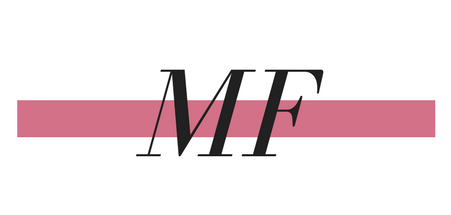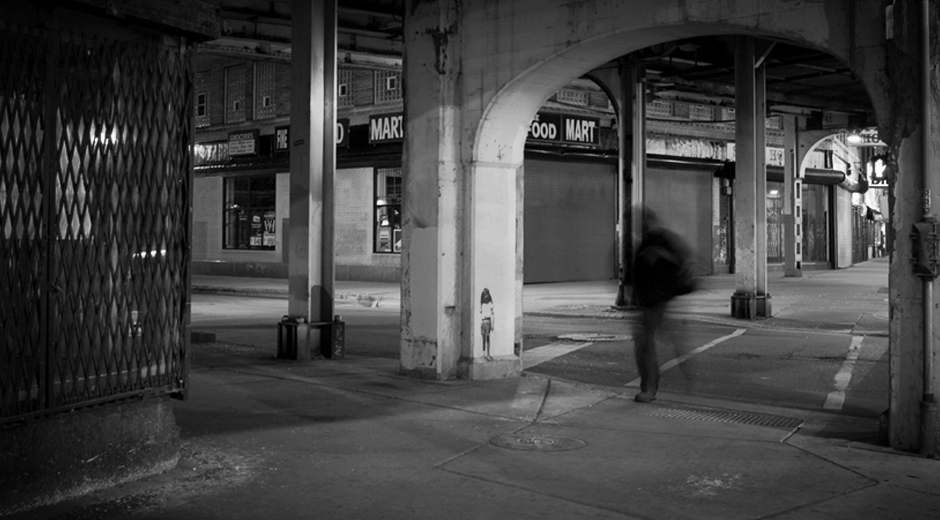Finding Safe Haven
After the sun sets on a crime-ridden strip of Howard Street on Chicago’s Far North Side, Angalia Bianca heads to work. As a worker for a local anti-violence group, Bianca spends the nighttime hours steering local youth away from drugs, gangs, and bloodshed. She’s acquainted with all three, and often recounts her own troubled history by the numbers that defined it: 36 years as a heroin user, more than 120 arrests, and 26 felony convictions. She relies heavily on her experience when mediating conflict.
For years, Bianca had slept in abandoned buildings. She stole. She did drugs. She spent time in and out of jail for forgery, theft, trespassing, and possession of narcotics. Eventually she lost custody of her children. But after she landed in prison for the seventh time, something changed – Bianca knew she wanted a better life. She just didn’t know how to make it happen.
After serving her time, Bianca sought help from a local homeless organization, A Safe Haven, and moved to its shelter in the Rogers Park neighborhood. Bianca followed the program closely – she attended all the required meetings, passed drug tests, and volunteered at every opportunity. She learned how to plan her time and maintain a budget. She signed a lease on an apartment. She even opened a bank account, her first in over 20 years. “They taught me basic life skills. I didn’t know how to get up in the morning, or how to clean the kitchen. They showed me how to do little things that most people take for granted, ” she says.
A Safe Haven is a network of shelters that address the causes of chronic homelessness and teach residents how to relearn a life without drugs and alcohol. Neli Vazquez-Rowland, a member of the Rotary Club of Chicago, and her husband, Brian Rowland, founded the organization 20 years ago. Under Vazquez-Rowland’s guidance, more than 50,000 clients have followed a program that includes treatment, education, health care, job training, and job placement. Seventy percent of those who complete it remain clean and sober – a rate more than five times the national average for those who finish similar programs. And with an annual $16 million budget, A Safe Haven has become one of the largest organizations serving the homeless in the United States.
In early 2013, the White House recognized Vazquez-Rowland as a Champion of Change for creating one of the most successful organizations addressing homelessness, unemployment, and addiction. She has also won praise locally. Illinois honored her with the Humanitarian Achievement Award during the state’s annual National Hispanic Heritage Month celebration in September. And Chicago’s mayor, Rahm Emanuel, applauds her dedication: “Neli is a vibrant, tireless, and passionate advocate for vulnerable residents in the City of Chicago, ” he says. “The city is grateful to have her and A Safe Haven as partners in helping Chicagoans turn their lives around. ”
Neither Vazquez-Rowland nor her husband had a traditional social service background, but they did have personal motivation to start A Safe Haven. In the early 1990s, both were flourishing in the financial field. She was a financial adviser, managing large portfolios. Rowland did index arbitrage at the Chicago Board of Trade, profiting from market inefficiencies. However, their lives took an abrupt turn when Rowland developed an addiction to alcohol. They could afford the pricey rehab but quickly realized that only their personal wealth separated them from the addicts who ended up on the streets or in jail.
“We realized how grateful we were that we had resources to get the help we needed and could pay for the best treatment that money could buy, ” Vazquez-Rowland says. “That helped me understand the disparities between people with resources and people without resources and where their paths lead them. If you have money, you have access to treatment, you have access to legal representation, and you have the ability to get back on your feet and not lose your job. But if it happens in the poor communities, you get arrested and you end up in jail. ”
As Rowland got sober, the couple discovered the paucity of services for people in recovery, especially for those with little money or family support. Government agencies weren’t meeting the needs of people they encountered who were struggling to get their lives back on track. So in 1994, Vazquez-Rowland and her husband bought and rehabbed an abandoned apartment building in Logan Square. Their plan was to rent out the building for a year to people recovering from drug and alcohol addiction, and when the market recovered, sell it for a profit. But as more people showed up seeking their services, Vazquez-Rowland realized she and her husband could help transform their lives.
So the couple established A Safe Haven Foundation, developing a comprehensive program to serve those in recovery. Vazquez-Rowland personally subsidized care for thousands as she continued to work in the investment business. But after five years, she and Rowland saw that this wasn’t a sustainable course. In 1999, armed with a study conducted by Northwestern University researchers that provided the hard data they needed to seek outside funding, they landed their first contract, with the Illinois Department of Corrections, to provide transitional housing for nonviolent ex-offenders.
Around that time, Vazquez-Rowland also decided to give up her career, leaving a job that had provided her family of four with a comfortable life. “We had this moment of truth, ” she says. “We asked each other: ‘What are we doing? Are we in the business of finance or are we in the business of helping people?’”
The decision wasn’t easy. Having grown up in a poor Chicago neighborhood, Vazquez-Rowland had lacked the resources that helped many others succeed in a business that wasn’t quick to hire women, especially women of color. When she finally landed her first job, some of her colleagues made bets that she wouldn’t last three months. Thirteen years later, she had become an industry success story.
“This was a leap of faith, to go into something that may or may not work – that may or may not be funded, ” she says. “But it got me thinking about the conversation my kids might have with me when they’re at a crossroads in their life. Do they do the right thing or do they do what they know is good for them right now? I wanted to be able to give them the right answer. ”
After 20 years, A Safe Haven has 28 locations throughout Chicago, housed in once-abandoned buildings the couple bought in the South Shore, Englewood, and North Lawndale neighborhoods – areas that other developers might shun.
Vazquez-Rowland has learned that there is no single approach to homeless services, nor is the homeless population homogeneous. Some clients were ready to move on to their own apartments but were shut out of the market because of bad credit or a criminal background. Some had difficulty finding a job after being released from prison. Others were families coming to the shelter for the first time because they’d lost their home to foreclosure after a job loss and needed beds and three meals a day while they planned their next steps.
In response, A Safe Haven developed social enterprise businesses to employ its graduates. These include a call center and box-lunch catering, landscaping, and pest-control ventures. And since 2007, 60 residents annually receive food-service and culinary-arts training, leading to city and state certification.
Vazquez-Rowland is proudest of the landscaping service. Though tens of thousands of visitors enjoy the sight of tulips blooming along Chicago’s Michigan Avenue medians every spring, few of them realize that the bulbs were planted by people who were formerly homeless or incarcerated, and got paid to plant them.
“The services of A Safe Haven are free, but its clients commit to becoming self-sufficient. The reason it’s so powerful here is there are so many people in different stages of their development, ” Vazquez-Rowland says. “They’re getting that pride back in their eyes, and the enthusiasm to take care of themselves. They’re leaving here with keys to their own apartment and with jobs that can support them. ”
Vazquez-Rowland often talks about the importance of return on investment. Citing the number of individuals who’ve been through the organization’s programs isn’t enough for her. She looks for outcomes – the number of people who have completed drug treatment or job training that led to employment and housing.
“With our background as investment bankers, we know how to measure what we do, ” Vazquez-Rowland says. “The government can lock people up for $100 a day or put kids in foster care at $30,000 a year. Our average cost is $80 a day. ”
The couple’s biggest challenge is trying to change the way the entire country deals with poverty. Vazquez-Rowland firmly believes that the emphasis has to be on solving the problem rather than using quick fixes to address the consequences of poverty.
“Right now, headlines are all about the people on public assistance, Chicago’s violence and crime, the overcrowded prison system. So the reaction is: We must hire more police and we must build more prisons, as opposed to looking at it at the root level, ” Vazquez-Rowland says. “We need to instead ask ourselves what is this ecosystem that’s out there causing these problems? Then we can resolve them with our model, anchored in almost 20 years of success. ”
While continuing to run A Safe Haven, Vazquez-Rowland spends three or four days a month at an office in Washington, D.C., meeting with leaders in government, business, and academia to promote her model nationally.
“We all want the same thing. We just don’t agree on how to achieve it, ” she says.
In North Lawndale, one of Chicago’s most poverty-stricken neighborhoods, A Safe Haven’s headquarters serves as an oasis. Inside the building, a teenager explains how the organization helped reunite him with his father. An older woman who has finished the program says goodbye to the friends she’s made at the shelter as she leaves for her first apartment. A young man approaches Vazquez-Rowland in the cafeteria to thank her for saving his life. She is a commanding figure, with her stiletto heels and tailored pencil skirt striking a glamorous note in this shelter tucked between a currency exchange and vacant industrial buildings. But her friendliness puts people at ease. She can’t walk from one side of the building to the other without someone calling out her name and waving a greeting. She knows everyone by first name too.
“This is the most rewarding work in the world, ” Vazquez-Rowland says. “We’re saving lives.”
Originally appeared in The Rotarian magazine on February 2014.


